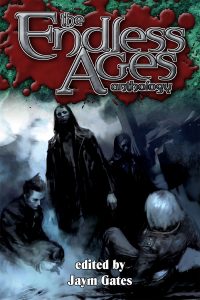
Over the years, I’ve learned that there’s a big difference between what you want to write, and the perception of what a “writer” is. The career of writing is filled with other people’s opinions based on your profile or popularity, which circles you travel in, how much money you’re believed to make, where you publish, who you’ve worked with, what genre you write, how frequently you put out books, and what it is you’re writing in the first place.
Perceptions, dear reader, are all bullshit and they are a distraction that can kill your productivity. They exist as a natural part of being in an uncertain, unpredictable industry where so many of us work from home and only see one another at conventions. This can be exacerbated if you have friends or acquaintances that are writing, too; the best advice I can give you is that your true friends will be happy for your success. If they’re not, and they make passive-aggressive comments, it’s because they perceive your success as a sign of their failing or what they haven’t earned. As a writer, you will define what you believe your success to be. There is no “one true way” to be a writer or have a career, because there is no formula for success other than to be persistent. Do you write? You’re a writer. Do you make money off of your work? Then, you are professional writer. Are you consistent? Then, you building a career in writing.
Enter the idea that you should “keep your eyes on your own page.” It may sound incredibly selfish, but this mantra is a tool for your own survival. Other people’s opinions can be damaging to your career, because that’s when you start to ask questions. Am I doing this right? Am I writing the right books? But wait, that other writer started the same year I did and they’ve surpassed me in money/popularity/etc. Then, the worst possible thing happens: jealousy. You deserved what that other writer got. After all, you wrote the same damn thing. You should’ve gotten that contract. Your book should’ve gotten better placement. Ack! Turning green yet? Worrying about what “X” writer is doing is a recipe for madness, because even if you’re friends that won’t help you get the words down and out the door.
That’s not to say there aren’t real problems that can affect your career like bigotry, sexism, homophobia, nepotism, etc. these things exist in publishing because they occur in real life. Publishing isn’t some esoteric business that exists in the clouds; it’s a multi-million dollar industry filled with people making decisions every day to produce books, comics, and games. What I’m suggesting, is that obsessing over the hows/wherefores/whys of someone else’s book took off won’t do you any favors, because your greatest asset is what you have to sell. If what you have isn’t selling, then write something else and try selling that. Or, do more research on the markets you’re submitting to and try a different one instead.
Lastly, I want to point out another reason why you should keep your eyes on your own page. In this political era, there is a lot of uncertainty that has nothing to do with the publishing industry. That big question mark of what will happen next is omnipresent and frightening as hell. I could spend hours modeling what the future might hold, I could spend days in front of the TV worrying whether or not we’re going to war, or I can write. Thanks to Make Art Not War 2017, I am putting “me” first. This acts as a shield that allows me to protect my work and make better decisions for myself and my career.
When I first designed the MANW program, I did so thinking that it would just be to weather the political storm–but it has a crucial, secondary purpose as well. By prioritizing my art over all the other bullshit out there, I know I am doing everything I can to make something happen. That, outside all the other bullshit, is what’s keeping me sane. I can’t predict what’ll happen, I can’t possibly know whether or not all of this will be worth the effort financially–but I can control whether or not I fill a blank computer screen, one word at a time. Without doing the work, I can’t do anything else. After all, no one wants to read an empty page.
- Mood: Crap, it’s Friday.
Caffeinated Beverages Consumed: Too many
Work-Out Minutes Logged Yesterday: Half an hour
In My Ears: Dragon Age: Inquisition soundtrack
Game Last Played: Dragon Age: Inquisition
Book Last Read: Research materials for work.
Movie/TV Show Last Viewed: Agents of S.H.I.E.L.D.
Latest Artistic Project: Make Art Not War 2017 Challenge and Rules
Latest Releases: In Volo’s Wake for Dungeons & Dragons 5th Edition. Read my end-of-the-year list of releases for an overview of what I’ve put out for 2016.
Current State of Projects: Read my latest project update. New project update coming this month!



